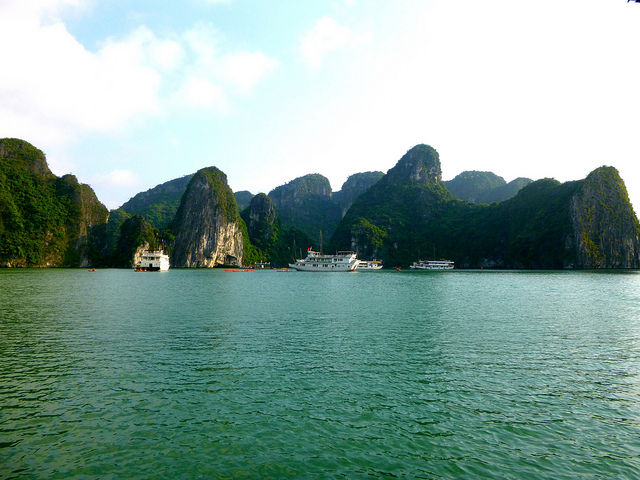Leaders and experts from the tourism industry met yesterday in Hanoi for an in-depth Tourism Promotion Conference, where they debated how Vietnam can become more successful in the lucrative and fast-growing sector.
Such a move would promote the industry in some of Vietnam's key partner markets, said Tuan, who also called for further co-operation with important partners Japan, China, Thailand, Malaysia, Australia and France.
He reported to the conference on the marketing initiatives since the year 2000 and submitted a strategy for tourism development until 2020, which he said would be a long and challenging process requiring a methodical strategy.He said that important long-term initiatives included joining tourism fairs, organising culture-tourism weeks and inviting foreign travel agents and media to Vietnam.
"In my opinion, Vietnamese tourism is integrating with the region and the world and we should promote it professionally," Tuan said."We can no longer be vague when advertising Vietnam. We need to focus on our strengths and sufficiently implement all stages of marketing and promotion, including market research, advertising and building a brand name.
"As a seller, we need to be proactive. In addition to showing customers what we can offer, we also need to introduce them clearly to the product and offer them special deals if necessary."He pointed out some advantages created in the development of Vietnamese tourism thanks to the support of international partners. These include a project with Luxembourg in developing human resources, a Spanish project for the empowerment for Vietnamese tourism in the period 2011-20, and the European Union (EU)'s Environmentally and Socially Responsible Tourism (ESRT) Programme.
Franz Jessen, head of the EU delegation, at the conference praised the partnership between the EU and Vietnam in the last 10 years.
He said tourism was one of the fastest growing and most crucial sectors in the world, and contributed substantially to Vietnam's growth and job creation. However, he warned that some key challenges are putting the potential of the sector at risk.
"International tourist numbers are going down, and the competition from neighbours is fierce," he said. "Marketing is one of these key areas where improvements are needed. If there is one single message on tourism marketing I would like to convey, it's that it needs funding," he said.Jessen said that the spending on marketing per every arrival in Vietnam is around 1 euro (US$1.3) per year, three times less than Malaysia.
"Through the ESRT we have facilitated the development of a Tourism Advisory Board, bringing together some of Vietnam's representatives from the tourism private sector to help provide advice and guidance on the development of tourism in Vietnam," he said."I truly hope that the work and resources we have invested through the ESRT can become a building block to market Vietnam as an attractive tourist destination in the future. From a European perspective, I know that Vietnam represents great potential."
Participants at the conference included representatives from the national and local government, travel companies and international tourism organisations.Representatives of tourism departments from around the country shared their experiences in promoting tourism in their localities.
Nguyen Xuan Binh, director of Da Nang City's Tourism Promotion Centre, expressed his ambition to build up a brand name for Da Nang as a city of events.
"We have had some success in promoting tourism through organising international events. For example, now when talking about firework competitions, people immediately think of Da Nang," he said. "Through our events we have introduced tourists to an image of a beautiful, friendly and peaceful city."
Similar conferences will be organised in other big cities to canvas more opinions from leaders and experts in the tourism industry.
.jpg)

















